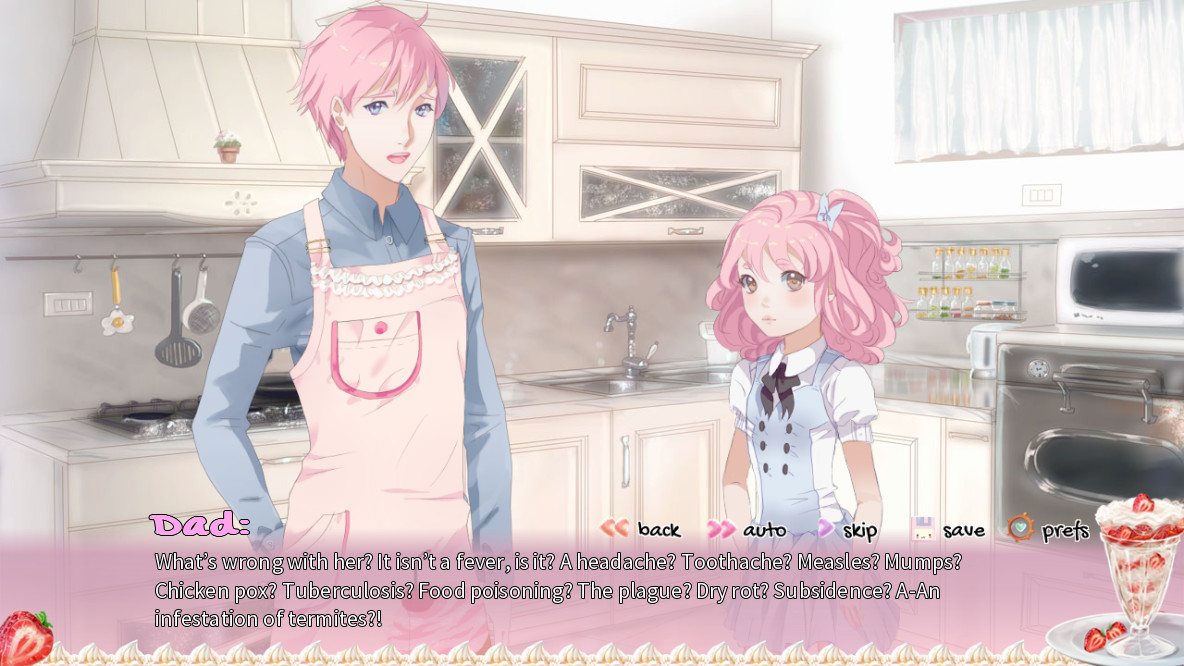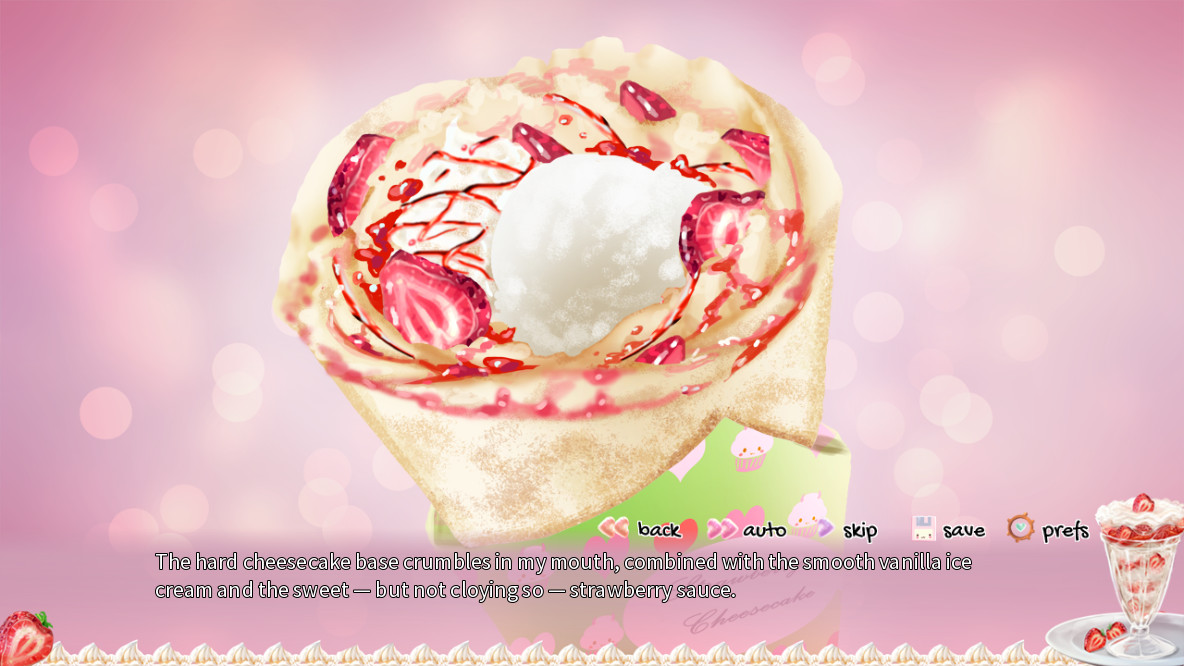If you had to imagine a game in which a demon manipulates her way into the life of a nine-year-old girl, you probably wouldn’t picture Strawberry Vinegar. Strawberry Vinegar is a cute visual novel packed with lovingly detailed pictures of food, all pastel colours and sparkles.
It tells the story of Rei, a clever young girl who doesn’t have any friends. Overshadowed by her famous mother and clingy father, she has developed a cynical approach to the world. One afternoon, she catches Licia, a horned demon girl, stealing cookies from her kitchen. Licia threatens to reap Rie’s soul if she doesn’t feed her delicious food every day for a week.
At first, Rie understandably resents Licia’s presence. Her larger-than-life parents, on the other hand, are delighted to meet Rie’s foreign friend, who they assume is from Norway despite repeatedly being told she is from Hell. Despite never having heard of this child before or talking to her parents about how their nine-year-old got to their house from another country, they welcome her immediately into the family.

The wilful ignorance and enthusiasm of Rie’s parents can be jarring, but you are soon drawn into the game’s humour. Strawberry Vinegar is a comedy and has some genuinely funny moments, once you accept the premise despite its silliness.
A lot of the comedy comes from exaggerating characteristics – Rie’s father’s neediness, her mother’s sassiness, Licia’s obsession with food – and playing them off against Rie’s grumpy disdain. Rie herself isn’t the most convincing nine-year-old, but she isn’t supposed to be. She’s insightful far beyond her years in a way that fills the game with dry humour.
There is no particular reason that Licia needs to be a demon. Her supernatural nature doesn’t come too much into the narrative. It would make the same amount of sense if she were actually a foreign exchange student. But the absurdity of the premise paves the way for a story that is captivating in its silliness.

Rie and Licia develop a genuine friendship over their shared love of food. It becomes clear that Rie’s cynicism comes from a place of vulnerability, which she learns to overcome with Licia’s companionship.
Strawberry Vinegar offers a surprisingly accurate depiction of coming to terms with new feelings and learning to care about someone. It is romantic yet innocent and its lessons are wise. It’s not just about the girls becoming friends, but also Rie’s parents’ love for each other despite their differences as people, and Rie’s father overcoming his own father’s judgement of his passion for cooking.
Strawberry Vinegar focuses on story more than gameplay. There are only a handful of decisions you get to make, usually centred on whether to get defensive or be vulnerable. There are some sections where minor choices could make the game more engaging, even if they wouldn’t influence the story very much. This isn’t entirely to the game’s detriment because the focal elements are well executed.

It is full of mouth-wateringly vivid descriptions of food. The art is fantastic and the soundtrack is as cute as the drawings. Strawberry Vinegar is a game that knows its priorities. It might not have the most hands-on approach to gameplay, but if you like bizarre and adorable stories, you’ll have a great time with this one.
Review: Strawberry Vinegar (Nintendo Switch)
Very good
Strawberry Vinegar tells a weird story centred around a graphic passion for food that is genuinely funny and unexpectedly wholesome despite some subtly suggestive undertones.


